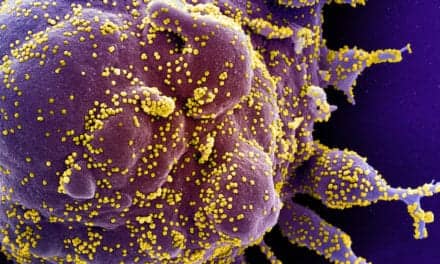The NextGenPCR endpoint thermocycler from Molecular Biology Systems, Goes, the Netherlands, decreases the time required to perform polymerase chain reaction (PCR) amplification for SARS-CoV-2 to 8 minutes. A single unit the size of a shoebox can perform 180 amplification runs per day. NextGenPCR machines launched about 2 years ago and are available globally.
To streamline testing for covid-19, the company has generated a qualitative protocol that can readily detect SARS-CoV-2 control DNA with sensitivity equivalent to existing methods, but requiring smaller reaction volumes, processing an increased number of samples per run, and using standard, affordable laboratory equipment. Detection of amplified product can be done with widely available blue light gel document systems.
“We sought to decrease what we identified as the longest step in the current testing scheme, amplification,” says Gert de Vos, founder and CEO of Molecular Biology Systems. “We started with the CDC assay because it is well characterized and has been readily available.”
The NextGenPCR thermocycler accepts both 96- and 384-well reaction plates. To increase throughput, Molecular Biology Systems tested both versions. By utilizing 384-well plates, the machine successfully processed four times as many samples without a loss in performance. The 384-well reaction chambers require only 25% of the reaction volume.
“This protocol produces a simple yes/no answer—so a single machine capable of running 24/7, with 8-minute runs, may provide a scalable screening solution analyzing 22,860 samples per day,” says de Vos.
Molecular Biology Systems is now collaborating with testing laboratories in the United States and the Netherlands to validate and transfer the method.
Find out more at Molecular Biology Systems.






